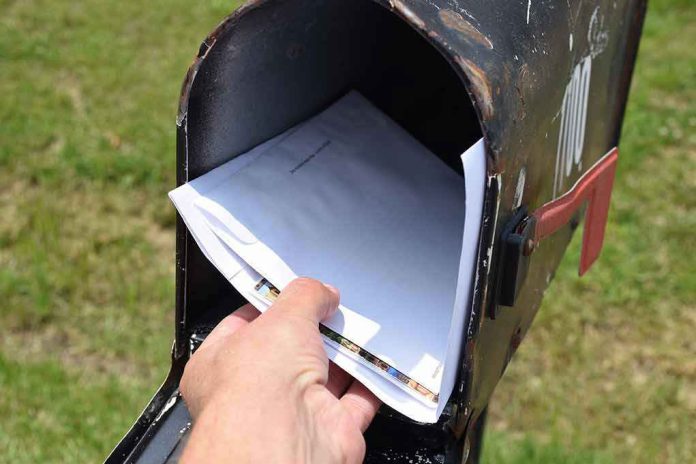
The House of Representatives just passed a bill that could change the way 76 communities receive their mail—and it’s about time.
At a Glance
- The House passed two bipartisan bills to create 76 new ZIP codes.
- Legislation led by Reps. Mario Diaz-Balart and Lauren Boebert.
- Changes aim to improve mail delivery and emergency services.
- Senate consideration is the next step for these bills.
The Need for New ZIP Codes
The ZIP Code system has been a cornerstone of mail delivery since 1963, revolutionizing how we send and receive mail across the United States. But as our population grows and communities expand, the need for more ZIP codes becomes increasingly evident. Over the years, many communities have found themselves struggling with outdated postal codes that fail to meet the demands of modern logistics and emergency services. The recent vote in the House aims to address these growing pains by authorizing the creation of 76 new ZIP codes.
For residents in rapidly expanding areas, the lack of new ZIP codes has led to misrouted mail and delayed emergency services. It’s a frustration that communities have been vocal about, prompting representatives like Mario Diaz-Balart from Florida and Lauren Boebert from Colorado to take action. These lawmakers have been pushing for change, and their efforts have finally resulted in legislation that could bring much-needed relief to their constituents.
The Role of Congress and USPS
Congressional intervention in ZIP code designation is not common, but it’s not unprecedented either. In cases where the United States Postal Service (USPS) has been slow to adapt to changing demographics and logistical needs, Congress has stepped in to make things right. This latest move is a testament to the power of local advocacy and the importance of addressing community-specific issues at the federal level.
While the USPS is tasked with implementing these changes, the legislative push gives them the mandate to act. This is crucial for communities that have found themselves at a standstill due to bureaucratic red tape. The creation of new ZIP codes will not only streamline mail delivery but also enhance emergency response times and potentially boost local economies by increasing property values and attracting businesses.
Impact on Communities and Economy
The introduction of new ZIP codes is expected to have far-reaching implications. In the short term, the USPS will need to allocate resources and plan for the transition, which could temporarily confuse residents as they adapt to new postal designations. However, the long-term benefits are substantial. Improved mail delivery efficiency and faster emergency response times are just the beginning.
Economically, communities gaining unique ZIP codes could see a rise in property values and new business opportunities. A distinct ZIP code can strengthen community identity and make an area more attractive to potential residents and investors. Politically, this move demonstrates a commitment from lawmakers to listen to their constituents and act on their behalf, something that is all too rare in today’s political climate.
Sources:
History Facts: How the Postal Service Created the ZIP Code
Library of Congress: ZIP Code Introduced
USPS OIG: The Untold Story of the ZIP Code


